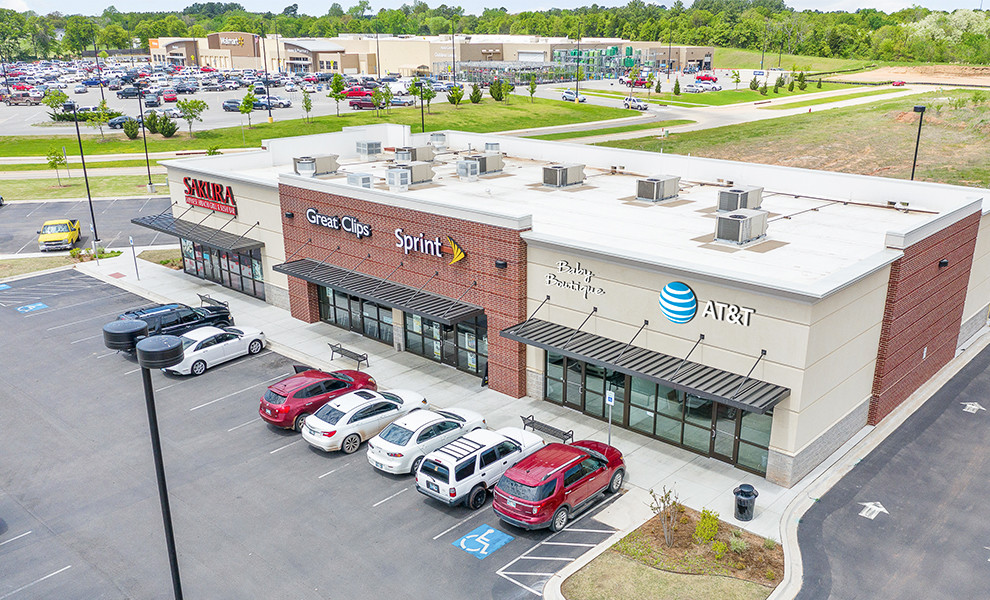
Loan Parameters
$250K-$5MM loan amount
Purchase, Cash-Out, Refinance
5-Year and 7-Year term
Varying rates from: 4.5-8%
Amortization: 20, 25, 30
Property Types Tier I: Multifamily And Mixed-Use (Residential)
Property Types Tier II: Mixed-Use (Commercial), Office, Retail, Light Industrial, Self-Storage, Warehouse, Automotive, Mobile Home Park, Daycare Center, Restaurant, Bar
Liberty Realty Capital Group is a commercial mortgage broker specializing in financing small commercial real estate loans. We recognize that commercial properties considered small by their loan size often represent a big potential impact to business owners, investors and communities. We work with lenders that specialize in this under served niche, bringing back smart, small-balance commercial loans.
Working with lenders that have closed and funded thousands of transactions, and that has the small-balance commercial lending expertise that makes the difference in funding viable projects. With underwriting for both investor and owner-occupied transactions, with flexible borrower options on terms, prepayments, amortization and cash-outs, Liberty helps small-business owners and investors finance the opportunities that drive the financial strength and quality of life in their communities.
Advantages of Non-bank versus SBA lenders
By working with non-bank lenders, no depository relationships are required. We are able to finance Owner-occupied transactions where the business owner has difficulty documenting their income for traditional lenders. Business owners who prefer to prove their income by providing 12 consecutive months of business bank statements instead of tax returns.
Commercial mortgages backed by the Small Business Administration (SBA) are an attractive option for business owners because of their low rates and business-friendly terms. And the lenders who offer SBA loans like them as well – mainly because the U.S. government guarantees a portion of each loan.
The problem is that all small business owners are not able to qualify for SBA loans. Most originators who have sought this option for their small-balance clients know this. But they may not know about the alternative solutions available in today’s competitive market.
The SBA reports that around half of the 28 million small businesses in America are operated outside the home. If you consider the fact that a sizable number of business owners are not able to qualify for SBA loans, the opportunity becomes clear. You can establish a new revenue stream for your business by offering alternative solutions to small business owners who have shown a pressing need for mortgage financing.
Here are some of the most common reasons why small business owners fail to qualify for SBA loans, followed by fallout alternatives you can present to your clients.
Common reasons for SBA loan rejection
Business owners must meet certain requirements to qualify for the SBA Certified Development Company (CDC)/504 or 7(a) programs, which are the real estate options participating lenders offer. Unfortunately, many prospective borrowers fall short for the following reasons:
Borrower/business make-up
The structure of a business can render it ineligible for an SBA loan. A few of the most common disqualifying factors include:
The applicant is not determined to be a small business
Avg. net income after taxes over the last 2 years must be less than $5 million
Tangible net worth needs to be $15 million or less
The business owners don’t have enough equity in their business
For a new business, the borrower should have approximately $1 of cash or business assets for each $3 of the loan
For an established business, the post-loan business balance sheet should show no more than $4 of total debt for each dollar of net worth (this may vary by industry)
The borrower has been in business less than a year and has no industry experience
2. Ineligible use for funds
Business owners often wish to refinance their small commercial real estate loans in order to consolidate debt. Unfortunately, the CDC/504 Program lists that as an ineligible use of funds. SBA programs also prohibit borrowers from using the loan to repay delinquent IRS withholding taxes, sales taxes, or similar funds.
3. Lack of documentation
Many entrepreneurs and self-employed individuals have difficulty producing tax returns that accurately illustrate the success of their business. Those who fall into this category face significant challenges when applying for an SBA loan.
4. Ineligible real estate
A prospective borrower will fail to qualify for an SBA loan if the real estate in question is either an investor property or an owner-occupied property of which they occupy less than 51%.
It is also worth mentioning that some borrowers who actually do qualify for an SBA program eventually back away from the deal when they learn about some of the associated fees, such as the loan guaranty fee of 3 to 3.5% of the SBA loan portion.